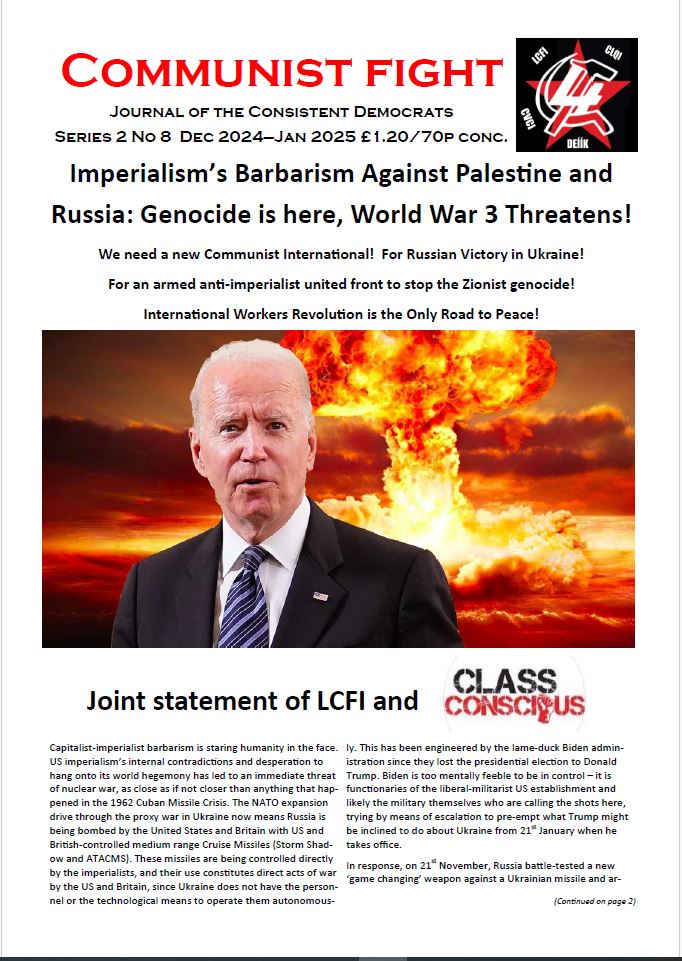The following article was published on March 19th in Spanish on the website of the Bolshevik Militant Tendency (Tendencia Militant Bolchevique). TMB are the Argentinian section of the LCFI. The original article can be read in Spanish by following this link

In 100 days of Milei’s government, Argentina’s exit from the BRICS was implemented, fulfilling the main mission delegated by imperialism to Milei. Recently, Milei’s government, which is both austerity-driven and pro-imperialist, granted US military control over the navigable rivers of the Plata system, opposing ties with China.
“In the context of its strategic disputes with China, the US government signed an agreement with the Argentine led by Javier Milei, allowing US military engineers to install themselves in the waterway connecting the Paraguay, Paraná, and Uruguay rivers.”
(Milei’s government approved an agreement for US military personnel to be installed in the Paraná waterway.)

Regarding workers’ situation, a mega-devaluation eroded both salaries and pensions within the first two months of Milei’s government, with real wages falling by over 21%. During the same period, pensions lost 43% in real terms. Additionally, there were steep increases in utility tariffs and transportation fares, alongside attempts to deepen austerity policies and surrender the country’s wealth to imperialism through laws and decrees that, for now, haven’t passed through congress due to inter-bourgeois crises and Milei’s lack of political support base.
Inflation soared during Milei’s government, even reaching inflation in dollars, eroding real wages. The loss of purchasing power for registered employees in December and January equated to the setback of four years under Macri’s government and double that of Fernández’s administration. However, certain unions began renegotiating contracts in 2024, offsetting the previous month’s inflationary hike.
Worker’s struggles hindered Milei’s government attacks, and indications suggest these struggles will grow. In Milei’s first 100 days, there were cuts to social programs and an escalation in repressive measures, such as the anti-picketing protocol or the current attempt to militarize Rosario with the involvement of the armed forces.
Milei’s government faces contradictions with factions of the industrial bourgeoisie due to its open-door policy, as well as with governors due to austerity measures towards provinces.
Internationally, there are contradictions with China due to Milei’s approach to Taiwan. In response, China cuts investments and demands repayment of previous financing. Milei’s austerity government also faces contradictions with sectors of union bureaucracy over attempts to deregulate social services and undermine collective agreements, eliminating centralized bargaining, the cornerstone of sector-based unions.
All these contradictions, and those to come, weaken Milei’s government, leading to parliamentary defeats such as the omnibus law and the austerity decree (which faced judicial vetoes). These contradictions are already evident within the ruling elite due to the vice president’s “opposition” role in the Senate, vetoing Milei’s austerity decree.
Milei’s fascistic government faced its first general strike called by the CGT on January 24 of this year. It’s the task of workers to capitalize on the growing weakness and contradictions facing Milei’s government to advance their own struggles, aiming to defeat the current austerity government and advance towards a worker-led solution.

